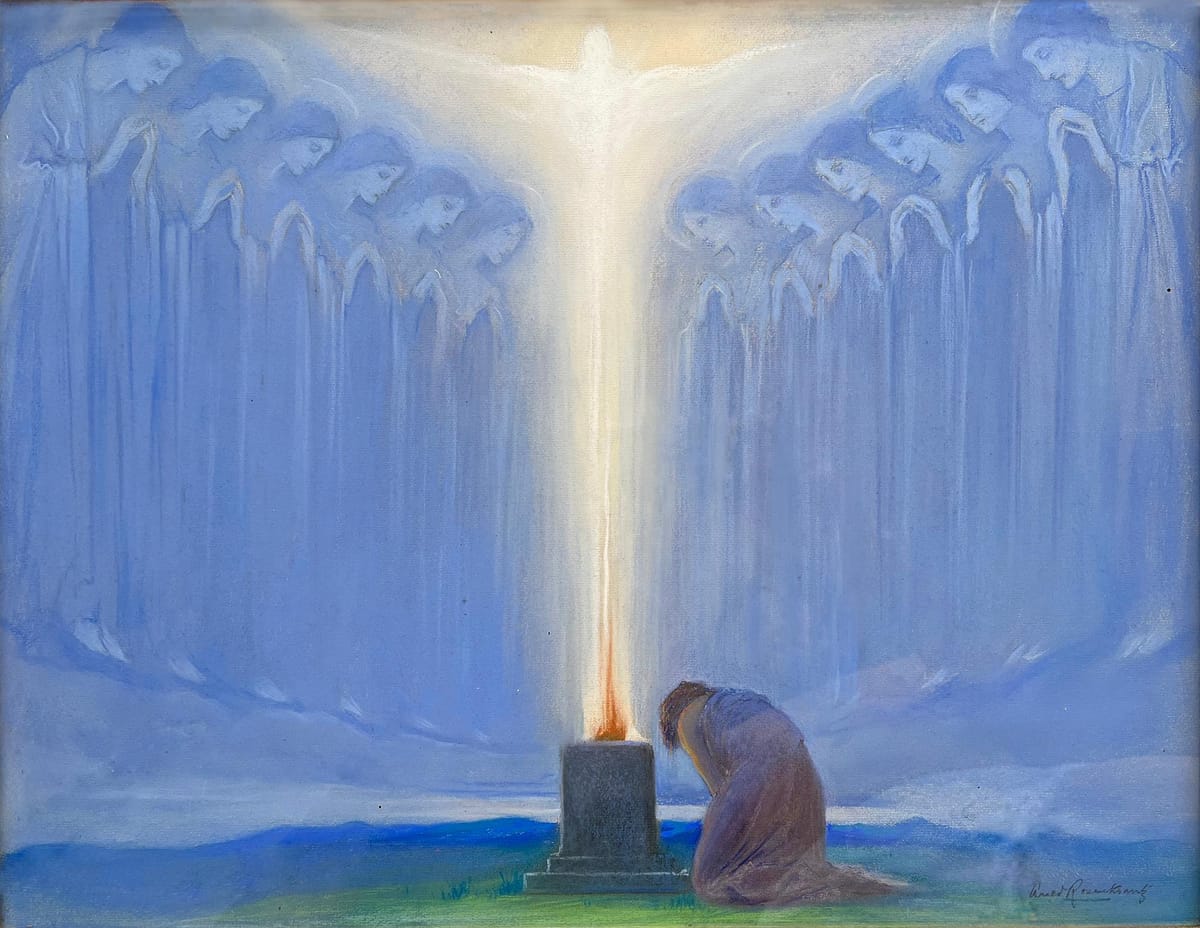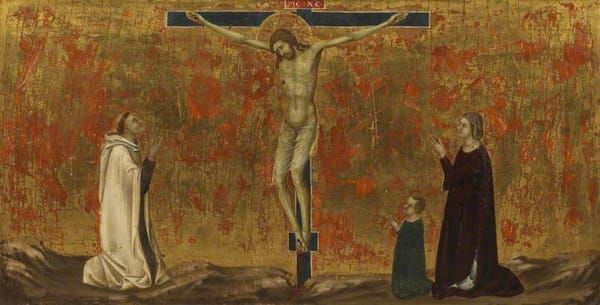The Humility of Divinization

We tend to grow pale and tremble when we come to recognize that the Eternal Spirit of Love is gradually removing all sense of self-importance from us; but how quickly we forget that it is self-importance that's being removed – not our actual importance.
For this self-conception is as much a glorification as it is a diminishing – a diminishing of our own self-regard, that we may be triumphantly glorified by Christ in the presence of the divine council, of the angelic stars, of the vast and countless ranks of shining saints, and before the majestic and admiring face of the Father himself.
How shrunken our own account of ourselves is! How restrictive our acquiesced socially constructed pigeon-holes! How plaintive our complaints about ourselves! How often we say to ourselves that we should be excused for our weakness! And all the while the Savior is calling us forth out of these shoe-horned hiding places into the daring and heights soaring wider world of the ever-expanding mystery of Who We Really Are, In Him.
As for my part, I've found that at the very outset of my spiritual journey, I've no more desired to see myself glorified by God as I have to be humbled. To step out into this majestic prospect of becoming a patriarch, even a saint, even a god whose destiny is constellated in the stars, is liable to knock the breath out of me. But with Christ there are no halfway measures. We cannot be truly humbled unless we are glorified.
And as you regard yourself as of no account, you will find that you are of all account. That the whole of God's universe regards you with honor, and you have been given the highest seat. As in C.S. Lewis' Perelandra, everything and everyone is at the centre, and it is no exaggeration to say that you yourself are the end for which everything was created, for the Being of God is everywhere and in no particular place at all.
Despite the very real rankings in heaven, the hierarchy of being can only be explained by an absolute equality, for the greatest must serve the least, even as the least is served by everyone greater, and all submit to one another.
For there is but one True Self, as in the grand visions of St. Gregory of Nyssa and St. Julian of Norwich, not to mention the Shepherd of Hermas. When the experiences of all are known one to another, we will then see that we have been made of One Being, and know ourselves as One. Many have made something of the fact that Christianity has given us our fully flowered individualism and individuation (though we haven't remotely attained to that full vision yet), and this is true. But it has only done so through the ultimate communitarianism.
It's no coincidence that St. Gregory was one of the primary developers of the doctrine of the Trinity, for through this is resolved the paradox of the One and the Many. We are all able to be one, because God is Three-in-One. It's also no surprise that he was one of the foremost proponents of universal reconciliation, a universalizing that only the pale vestigial remnant of selfish human nature we have inherited from our ancestors desires to resist.





